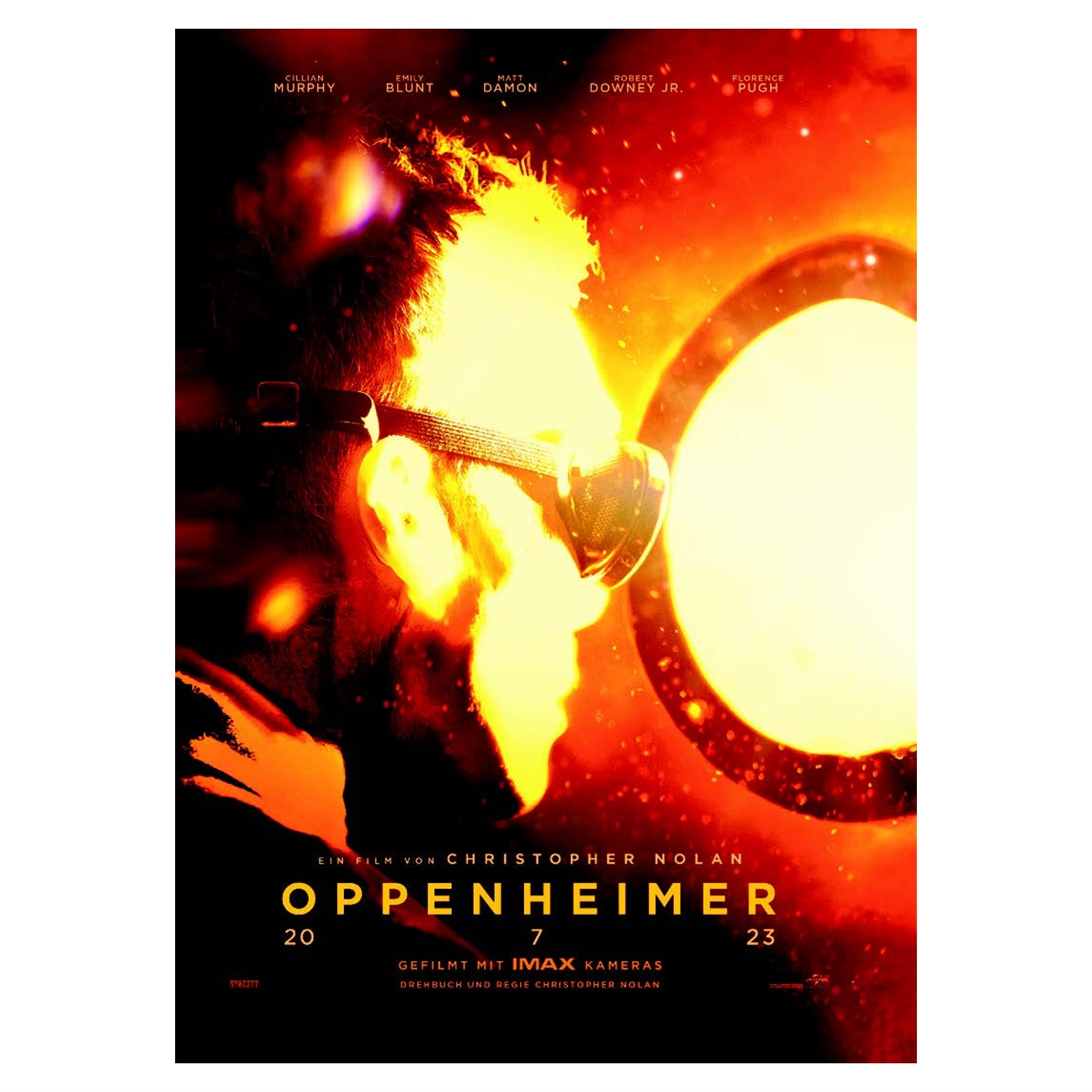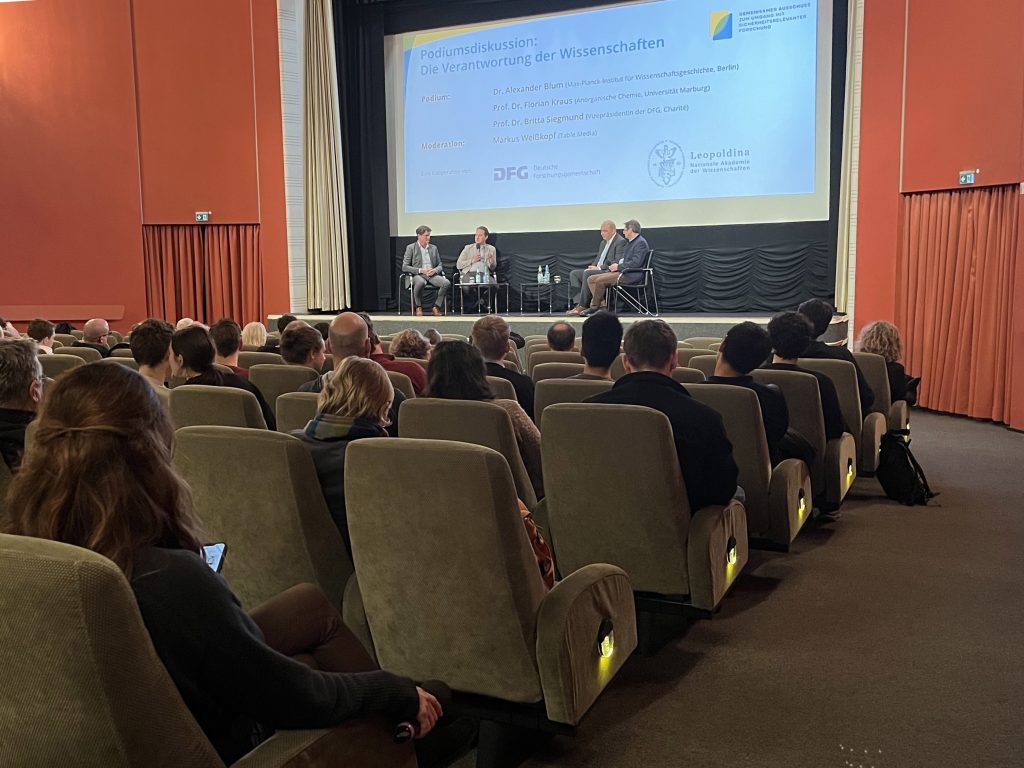Film evening with panel discussion
On 23 January 2024, the Joint Committee held a film evening followed by a panel discussion at Cinema Paris in Berlin. Christopher Nolan’s film “Oppenheimer” was shown, which not only dramatically recounts the events surrounding the construction of the first atomic bomb as part of the Manhattan Project, but also raises fundamental questions about the responsibility of science. In particular, the physicist and head of the project Robert J. Oppenheimer is portrayed as a torn figure who, on the one hand, was driven by scientific curiosity to build an atomic bomb, but at the same time took a critical view of the consequences of the availability of such weapons of mass destruction in a geopolitical context.
Journalist Markus Weißkopf moderated the panel discussion, which was attended by science historian Alexander Blum, chemist Florian Kraus and microbiologist and President of the Robert Koch Institute Lars Schaade. Together, the panellists attempted to apply the issues of science ethics addressed in the film to the present day. Blum began by emphasising that the Manhattan Project was clearly military contract research, which took place under different circumstances to free academic research. Oppenheimer and some of his colleagues had become important voices in favour of the peaceful use of nuclear fission after the Second World War. Even today, however, researchers are often confronted with the fact that their newly developed knowledge or technologies have both useful and harmful applications. Schaade discussed security-relevant research projects in the field of microbiology, in particular gain-of-function research on pathogens, for which ethical advice should be made available by the research institutions on a mandatory basis. In response to a question from the audience as to whether civil clauses at universities were not the better way to control such risks of misuse, Kraus explained that this could also prevent useful peaceful applications of original military research. Furthermore, civil clauses at universities would not stand in the way of military contract research at other institutions. On the question of the frequency of such concerning security-relevant research, Kraus and Schaade explained that this tends to be the exception in academia and gave some examples from chemistry and pathogen research.



